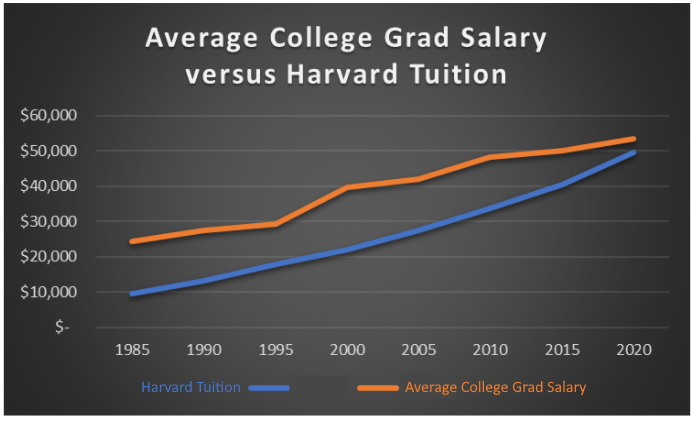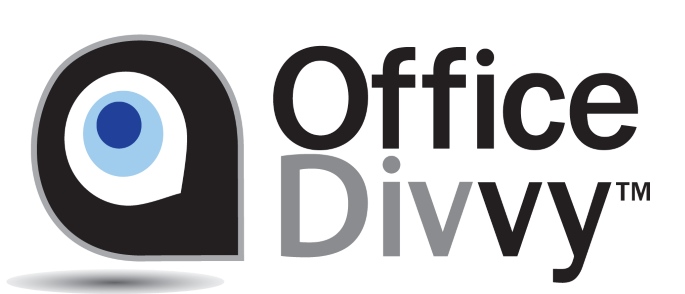On Great Resignation, Upskilling, Reskilling, Student Debt, and Formal Education
What can we learn from the ‘Great Resignation’ when it comes to skill and talent in the workplace?
Nearly 4.3 million people quit their jobs in January 2022, according to the U.S. Department of Labor’s JOLTS report, the second-highest since the record that was set in November 2021. There were also 11.3 million job openings that are waiting to be filled, just shy of December 2021’s record.
When the signs of “Great Resignation” started in mid to late 2020, folks were jumping on the bandwagon of easy blame; hypothesizing that the wide unemployment subsidies were making people stay home because they could earn the same or more by staying home than working. All these subsidies and unemployment compensations have long stopped now but the trend continues. Clearly, something else is at play here.
Finding, attracting, and retaining talent with requisite skills has been increasingly difficult for business. Employees who feel stuck in jobs that are not satisfying or lucrative, used the opportunity of the pandemic-related shutdowns, uncertainty, and the pause, to catapult themselves ahead for better opportunities and better compensation. All this created a movement of change: A change in how employees approach work, what the meaning of work is, and how and where work is conducted.
Employees are not just quitting their jobs arbitrarily. They are doing so with purpose because there are better, more comfortable, more meaningful jobs for lateral or upwardly mobile opportunities. And that is possible because there are employers who are hungry and willing to compete for more qualified, skilled employees.
Woven inside these macro trends are upskilling, reskilling, and new questions about learning in and outside of school. In fact, these trends are now driving millions of existing and new professionals and billions of dollars to Upskilling and Reskilling Startups.
What is Upskilling?
To “upskill” is a relatively new word. It first appeared in the Oxford Learning Dictionaries in 2010.
Simply put, upskilling is the process of learning new skills or improving existing ones to meet the demands of a changing marketplace.
The upskilling process begins with an assessment of one’s current skills and the gaps in one’s knowledge. Once you have identified the skills that need bridging or improvement, you can then focus on acquiring the relevant skills.
There are many ways to upskill, including online courses, peer-to-peer learning, workshops, immersive bootcamps, one on one coaching, and more.
In the early months of the Covid 19 pandemic, when everything was shut down, to prove demand, at Office Divvy we piloted a series of events we named “Upskill in 20.” A live instructor conducted a short online session with the goal of delivering actionable learnings, in 20 minutes. Nearly 100 participants attended these live classes from the comfort of their computer screens in April, May, and June of 2020.
Office Divvy's Upskill20
Office Divvy has been offering classes and delivering events for Entrepreneurs and area businesses since 2008. Upskill 20 is a series of upskilling classes that are 20 minutes in length that deliver actionable learnings and related resources. Topics include Hybrid Ways of Working, Collaboration Tools for Teams, and Workflow Automations to name a few.What is Re-skilling?
While upskilling provides skills to grow one’s current career, reskilling involves training for an entirely new career or job.
With technological advances and automation, many jobs that have existed for decades are disappearing. In their place are new types of jobs that require different skill sets.
There is a burgeoning number of companies already in business, and with many still coming on the scene to help, such as Articulate, Degreed, Udacity, Udemy, General Assembly, and more. They are also attracting big VC money, in billions of dollars.
Formal Education vs. Upskilling and Reskilling in Business
In light of the great-resignation and other trends, re-examining the relevance of higher education may be overdue, especially in some fields of study and based on the changing realities and needs of employers and employees alike.
To some, rethinking higher education may come across as a contrarian thought, especially when it is coming from someone like me, with 18 years of traditional formal education, all the way through graduate school.
But is this really even a contrarian thought anymore? Tesla, Google, Facebook, and other major companies now lifted their college degree requirements for new hires signaling significant changes are already here and on the horizon, especially for certain types of jobs.
It is fair game to question if hiring norms in the workplace change how will that impact the future of education? If the benefit of a college degree in terms of landing a job goes away, what will that mean in the long term for colleges?
Facebook’s Zuckerberg, Microsoft’s Bill Gates and Paul Allen dropped out of Harvard. Steve Jobs, Jack Dorsey, Ralph Lauren, Steven Spielberg, Madonna, among other highly successful people are all college dropouts. Clearly, for extraordinary success, schooling may not be a prerequisite.
Today, in the United States, the average college education costs are over $20,000 for in-state public schools and over $50,000 for private colleges and universities. 65% of all college students graduate with debt. What’s more shocking is 15% of all American ADULTS report they have outstanding undergraduate student debt.
Amortization of tuition and student loan debt takes years and creates an undue burden for many young people.
In Flagler County, we’re spending over 200 million dollars annually to educate 13,000 students every year. That is spending of over $15,000 per student per year in the public school system.
Nearly $200,000 is spent to create one single high-school graduate in Flagler County.
This is not a likable question to ask perhaps, but do these high school grads graduate with knowledge and skills worth $200,000 each?
Is the community getting their money’s worth?
Are the students getting benefits worth $15K per year?
Are future employers of these students getting a return on this kind of investment the community is making?
When one sees a high-school and college degree as pseudo-mandatory, and when the market demand exceeds the supply, the advantage of competition in the marketplace benefiting the “consumer” goes away. And further, the need for rethinking and changing things by those who provide these “services” go away.
Need proof? Between 1985 and 2020 average college graduate starting salaries increased by 120%. That’s not bad. In contrast, Harvard University’s average tuition for example increased by 422% (and that is just the average tuition, not including the cost of books and accommodations).

With prestigious schools’ admission levels at 10% or lower, certainly, there is a significant supply/demand issue that provides a one-sided advantage for colleges to keep things the same and raise tuition year over year.
Best-selling author, famous for his books widely popular in business-circles, the Tipping Point, and the Outliers — Malcolm Gladwell, once said on CNBC:
“The amount of money that’s wasted on meaningless education never ceases to amaze me.”
The shortcomings of high school and college education in terms of delivering workforce-ready young adults have been a known issue.
High schools and colleges have an obligation to ask themselves this important question: Are we shaping young adults to be ready for life and work after they graduate?
Having worked with over 30 high-school and a handful of college interns in the past 10 years at Office Divvy, my answer to that question would be, “No.”
Can new forms of learning the skills necessary in life and work, and upskilling, supplement or replace formal education in business? Will the remote-first or hybrid-work culture further impact “formal education” versus “practical education” through upskilling and reskilling?
Perhaps a new approach centered on lifelong learning will not replace formal education provided by high school or colleges right away, but it is clear to me that without “upskilling” at any age, and even soon after completing high school and college, there will be deficits in the workforce.
I believe we are seeing and will continue to see increasingly, the changing trends and democratization of education as we know it.
At Office Divvy helping our teams and clients to upskill so we can tackle new ways of working is part of our culture and will continue to be for the foreseeable future.
How are you doing when it comes to upskilling? Are you behind? Are you ahead?
We’d love to hear from you. Feel free to comment below.
Credit: Big thanks to Lisa Ekinci for collaborating with me in this article 😊
Some of the sources for this blog post:
- Great Resignation shows no sign of slowing down
- Average Student Loan Debt for a Bachelor’s Degree
- Malcolm Gladwell: Americans spend too much on ‘meaningless education’
- ‘Great Resignation’ Drives Billions In VC Dollars To Upskilling Startups

- On Great Resignation, Upskilling, Reskilling, Student Debt, and Formal Education - March 12, 2022
- Hybrid work, you are not behind. You may even be ahead. - December 29, 2021
- 10 Things Any Small Business Owner Can Draw from Harry Potter - July 11, 2021












Two more good articles I read since publishing this blog post:
Why are folks quitting?
https://www.pewresearch.org/fact-tank/2022/03/09/majority-of-workers-who-quit-a-job-in-2021-cite-low-pay-no-opportunities-for-advancement-feeling-disrespected/
Is “jumping around” contributing to Great Resignation numbers?
https://www.foxbusiness.com/lifestyle/workers-regret-quitting-great-resignation